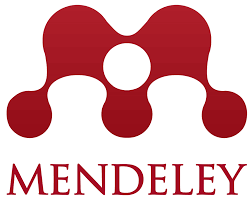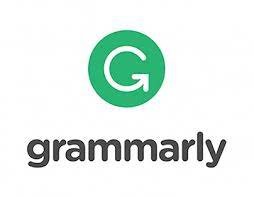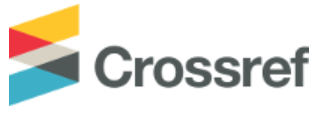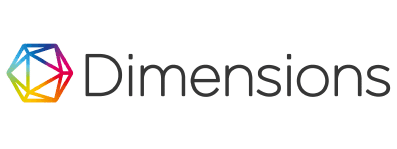Teachers' and Students' Perceptions of Android-based Mathematics Learning Media Development by Integrating GeoGebra
Abstract
The utilization of technology as a learning resource or media has been widely used as an innovation to promote learning. It is expected to stimulate the thoughts, feelings, interests, and attention of students in learning. The purpose of this study is to find out teachers’ and students’ perceptions of the need for Android-based mathematics learning media on geometry transformation. This research used a descriptive qualitative approach. Data was collected using validated questionnaires for teachers and students. The subjects of this study were mathematics teachers and 2nd-grade students at a senior high school in Aceh, Indonesia. The data was analyzed using descriptive statistical methods. The results showed that the geometry transformation subject was difficult for students. The various formulas and the material's abstractness make understanding the transformation subject challenging. Less attractive learning sources or media and a lack of variety in learning approaches are also influential factors. This study also revealed that teachers were still not optimal in utilizing the various available technological media. Thus, teachers and students need interesting and innovative learning media that can assist students in exploring abstract mathematical concepts, especially geometry transformation. These results became an important reference in the development of Android-based learning media assisted by GeoGebra Software.
Keywords
Full Text:
PDFReferences
Agustin, R. D., & Ambarawati, M. (2019). Mathematics encyclopedia media as android based learning. International Journal of Scientific and Technology Research, 8(9), 1–4. http://www.ijstr.org/research-paper-publishing.php?month=sep2019
Ahmar, A. S., & Rahman, A. (2017). Development of teaching material using an android. Global Journal of Engineering Education, 19(1), 72–76. https://doi.org/10.26858/gjeev19i1y2017p7376
Alkhateeb, M. A., & Al-Duwairi, A. M. (2019). The effect of using mobile applications (GeoGebra and sketchpad) on the students’ achievement. International Electronic Journal of Mathematics Education, 14(3), 523–533. https://doi.org/10.29333/iejme/5754
Astra, I. M., Nasbey, H., & Nugraha, A. (2015). Development of an android application in the form of a simulation lab as learning media for senior high school students. Eurasia Journal of Mathematics, Science and Technology Education, 11(5), 1081–1088. https://doi.org/10.12973/eurasia.2015.1376a
Bidin, S., & Ziden, A. A. (2013). Adoption and application of mobile learning in the education industry. Procedia - Social and Behavioral Sciences, 90, 720–729. https://doi.org/10.1016/j.sbspro.2013.07.145
Calimag, J. a N. N. V, Miguel, P. A. G., Conde, R. S., & Aquino, L. B. (2014). Ubiquitous learning environment using android mobile application. International Journal of Research in Engineering and Technology, 2(2), 119-128. http://citeseerx.ist.psu.edu/viewdoc/download?doi=10.1.1.681.508&rep=rep1&type=pdf
Clark-Wilson, A., Robutti, O., & Thomas, M. (2020). Teaching with digital technology. ZDM - Mathematics Education, 52(7), 1223–1242. https://doi.org/10.1007/s11858-020-01196-0
Dwiranata, D., Pramita, D., & Syaharuddin, S. (2019). Pengembangan media pembelajaran matematika interaktif berbasis android pada materi dimensi tiga kelas X SMA. Jurnal Varian, 3(1), 1–5. https://doi.org/10.30812/varian.v3i1.487
Ejikeme, A. N., & Okpala, H. N. (2017). Promoting children’s learning through technology literacy: challenges to school librarians in the 21st century. Education and Information Technologies, 22(3), 1163–1177. https://doi.org/10.1007/s10639-016-9481-1
Fuys, D., Geddes, D., & Tischler, R. (1988). The Van Hiele model of thinking in geometry among adolescents. Journal for Research in Mathematics Education, 3, 1-196. https://doi.org/10.2307/749957
Handayani, I. M, & Sulisworo, D. (2021). Pengembangan media pembelajaran matematika berbantuan development of GeoGebra-assisted mathematics learning media on geometry transformation materials. Jurnal Equation, 4(1), 47–59. https://ejournal.iainbengkulu.ac.id/index.php/equation/article/view/4027
Hendriawan, M. A., & Septian, A. (2019). Pengembangan jimath sebagai multimedia pembelajaran matematika berbasis android untuk siswa sekolah menengah atas. IndoMath: Indonesia Mathematics Education, 2(1), 45. https://doi.org/10.30738/indomath.v2i1.2785
Jelatu, S., Sariyasa, & Ardana, I. M. (2018). Effect of GeoGebra-aided react strategy on understanding of geometry concepts. International Journal of Instruction, 11(4), 325–336. https://doi.org/10.12973/iji.2018.11421a
Kozma, R. B. (1991). Learning with media. Review of Educational Research, 61(2), 179–211. https://doi.org/10.3102/00346543061002179
Lambert, V. A., & Lambert, C. E. (2012). Qualitative descriptive research: An acceptable design. Pacific Rim International Journal of Nursing Research, 16(4), 255–256. http://antispam.kmutt.ac.th/index.php/PRIJNR/article/download/5805/5064
Lubis, I. R., & Ikhsan, J. (2015). Pengembangan media pembelajaran kimia berbasis android untuk meningkatkan motivasi belajar dan prestasi kognitif peserta didik SMA. Jurnal Inovasi Pendidikan IPA, 1(2), 191-201. https://doi.org/10.21831/jipi.v1i2.7504
Lutvaidah, U. (2016). Pengaruh metode dan pendekatan pembelajaran terhadap penguasaan konsep matematika. Formatif: Jurnal Ilmiah Pendidikan MIPA, 5(3), 279–285. https://doi.org/10.30998/formatif.v5i3.653
Mertler, C. A. (2016). Quantitative research method. In: Mertler, C. A. (Ed.) Introduction to educational research. Thousand Oaks, CA: SAGE Publications, Inc.
Nahdi, D. S. (2019). Keterampilan matematika di abad 21. Jurnal Cakrawala Pendas, 5(2), 133–140. https://doi.org/10.31949/jcp.v5i2.1386
Novaliendry, D., Darmi, R., Hendriyani, Y., Nor, M., & Azman, A. (2020). Smart learning media based on android technology. International Journal of Innovation, Creativity and Change., 12(11), 715–735. https://www.ijicc.net/images/vol12/iss11/121109_Novaliendry_2020_E_R.pdf
Rahmi, A., Armiati, A., & Syarifuddin, H. (2021). Tahap preliminary research pengembangan media pembelajaran berbasis komputer pada materi transformasi SMA/MA. Jurnal Riset Pendidikan Matematika Jakarta, 3(1), 14–18. https://doi.org/10.21009/jrpmj.v3i1.5695
Rogers, R., Lombardo, J., Mednieks, Z., & Meike, G. B. (2009). Android application development. O’Reilly Media, inc.
Sholikhah, A. (2016). Statistik deskriptif dalam penelitian kualitatif. Komunika: Jurnal Dakwah Dan Komunikasi, 10(2), 342–362. https://doi.org/10.24090/komunika.v10i2.953
Susilana, R., & Riyana, C. (2009). Media pembelajaran: Hakikat, pengembangan, pemanfaatan, dan penilaian. Bandung: CV Wacana Prima.
Voogt, J., & Roblin, N. P. (2012). A comparative analysis of international frameworks for 21 st century competences: Implications for national curriculum policies. Journal of Curriculum Studies, 44(3), 299–321. https://doi.org/10.1080/00220272.2012.668938
Wah, L. K. (2015). The effects of instruction using the arcs model and GeoGebra on upper secondary students’ motivation and achievement in learning combined transformation. Asia Pacific Journal of Educators and Education, 30, 141–158. http://eprints.usm.my/34771/
Wassie, Y. A., & Zergaw, G. A. (2019). Some of the potential affordances, challenges and limitations of using GeoGebra in mathematics education. Eurasia Journal of Mathematics, Science and Technology Education, 15(8), 1-11. https://doi.org/10.29333/ejmste/108436
Yektyastuti, R., & Ikhsan, J. (2016). Pengembangan media pembelajaran berbasis android pada materi kelarutan untuk meningkatkan performa akademik siswa SMA. Jurnal Inovasi Pendidikan IPA, 2(1), 88-99. https://doi.org/10.21831/jipi.v2i1.10289
Zainiyati, H. S. (2017). Pengembangan media pembelajaran agama islam berbasis ICT. Jakarta: Kencana.
DOI: https://doi.org/10.31002/ijome.v5i1.5561
Refbacks
Copyright (c) 2022 Indonesian Journal of Mathematics Education

This work is licensed under a Creative Commons Attribution-NonCommercial-ShareAlike 4.0 International License.

This work is licensed under a Creative Commons Attribution-NonCommercial-ShareAlike 4.0 International License.
Indexed by:
ISSN: 2654-3907 (print) | 2654-346X (online)
Jalan Kapten Suparman No.39, Magelang, Jawa Tengah, Indonesia 56116
Phone (0293) 364113 Fax. (0293) 362438
Website : http://jurnal.untidar.ac.id/index.php/ijome









